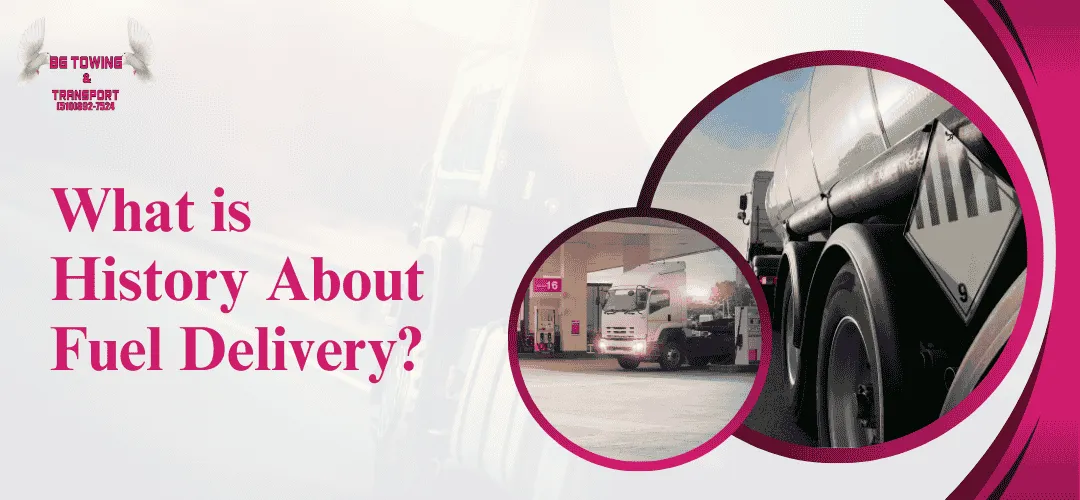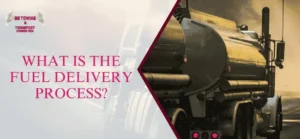The history of fuel delivery is a fascinating journey that traces the evolution of energy consumption and transportation. From the early days of human civilization, when wood and animal fats were the primary energy sources, to the modern reliance on fossil fuels, fuel delivery methods have undergone significant transformations.
The discovery of oil in the late 19th century revolutionized the energy landscape. As the demand for petroleum products surged, the need for efficient fuel delivery systems became apparent. Early fuel delivery service methods involved horse-drawn wagons transporting barrels of oil to local markets. However, as industrialization progressed, this method proved inadequate for the growing needs of businesses and consumers.
The advent of the internal combustion engine in the early 20th century further accelerated the demand for fuel delivery services. Gasoline became the fuel of choice for automobiles, and the establishment of gas stations began to take shape. These stations provided a convenient way for consumers to access fuel, leading to the proliferation of fuel delivery services that catered to both individual and commercial needs.
As technology advanced, so did the methods of fuel delivery. The introduction of pipelines allowed for the bulk transportation of oil and gas over long distances, drastically reducing transportation costs and increasing efficiency. Today, fuel delivery services encompass many options, including diesel fuel delivery, bulk fuel delivery, and even emergency fuel delivery services.
Moreover, developing tools to diagnose fuel delivery systems has enhanced the ability to maintain and optimize these systems. These tools help identify issues within the fuel delivery process, ensuring that vehicles and machinery operate at peak efficiency.
In summary, the history of fuel delivery reflects the broader trends in energy consumption and technology. From its humble beginnings to the complex systems we have today, fuel delivery has become an essential aspect of modern life, driving economies and powering vehicles across the globe.
What is the Purpose of the Fuel Delivery System?
The primary purpose of the fuel delivery system is to ensure that fuel is transported efficiently from storage tanks to the engine or machinery that requires it. This system is crucial for operating vehicles, industrial equipment, and residential heating systems. It plays a vital role in maintaining energy flow, ensuring that engines receive the correct fuel for optimal performance.
The fuel delivery system in vehicles consists of several key components, including the fuel tank, fuel pump, fuel filter, and fuel injectors. Each component works together to ensure fuel is delivered promptly and efficiently. The fuel tank stores the fuel while the pump draws it out and sends it through the filter, removing impurities that could affect engine performance. Finally, the fuel injectors atomize the fuel and mix it with air before it enters the combustion chamber.
A reliable fuel delivery system is essential for diesel or bulk fuel delivery businesses. It ensures that machinery operates smoothly, reducing the risk of downtime and increasing productivity. Additionally, a well-maintained fuel delivery system can help improve fuel efficiency, crucial in an era when energy costs are a significant concern for many companies.
Furthermore, the fuel delivery system is integral to safety and compliance with environmental regulations. Regular maintenance and diagnostic tools can help identify potential issues within the system, allowing operators to address them before they lead to more significant problems.
In summary, the fuel delivery system aims to facilitate the efficient and safe transportation of fuel, ensuring that engines and machinery receive the necessary energy to operate effectively.
Why Was the Discovery of Fuel So Important?
The discovery of fuel, particularly fossil fuels like oil and natural gas, marked a turning point in human history. It transformed economies, societies, and technologies, laying the groundwork for the modern world as we know it today. The importance of this discovery can be understood through several key factors.
Fossil fuels became the primary energy source for industrialization. The ability to harness oil and gas allowed for the development of machinery and transportation systems that significantly increased productivity and efficiency. Factories could operate continuously, and transportation networks expanded, enabling the movement of goods and people on an unprecedented scale. This shift not only spurred economic growth but also changed the way societies functioned.
Secondly, the discovery of fuel facilitated technological advancements. The internal combustion engine, which relies on gasoline and diesel, revolutionized transportation by powering automobiles, trucks, and airplanes. This innovation transformed personal mobility and global trade, making it possible to travel and transport goods over vast distances in a fraction of the time it once took.
Moreover, fuel discovery has had profound implications for energy consumption and environmental impact. As societies became increasingly reliant on fossil fuels, the consequences of this dependency became apparent, leading to concerns about climate change and sustainability. This has spurred ongoing research and development of alternative energy sources, highlighting the need for a balanced approach to energy consumption.
Additionally, the discovery of fuel has shaped geopolitical dynamics. Countries rich in oil and gas reserves have significantly influenced the global stage, leading to complex relationships and conflicts over energy resources. The quest for energy security continues to be a critical factor in international relations, affecting trade agreements, military strategies, and diplomatic efforts.
In conclusion, fuel discovery was pivotal in shaping the modern world. It catalyzed industrialization, spurred technological advancements, and influenced global politics. As we navigate the challenges of energy consumption and environmental sustainability, understanding the historical significance of fuel remains essential.
How is Fuel Delivered?
Fuel delivery is a complex process that involves several methods and technologies to ensure that fuel reaches its intended destination efficiently and safely. The methods of fuel delivery can vary based on the type of fuel, the volume required, and the specific needs of the consumer or business.
One of the most common methods of fuel delivery is through fuel trucks. These specialized vehicles have tanks that can transport various fuel types, including diesel and gasoline. Fuel delivery services often use these trucks to deliver fuel directly to businesses, construction sites, and residential properties. The drivers are trained to handle the fuel safely and ensure that it is delivered in compliance with local regulations.
Another significant method of fuel delivery is through pipelines. Pipelines are used for bulk fuel delivery, transporting large quantities of oil and gas over long distances. This method is highly efficient and cost-effective, as it minimizes the need for transportation by road and reduces the risk of spills and accidents. Pipelines are a critical component of the energy infrastructure, connecting refineries to distribution centers and end-users.
Fuel delivery can occur through rail and marine transport in addition to trucks and pipelines. Trains can carry large fuel volumes across vast distances, while tankers transport fuel over water. These methods are particularly important for reaching remote areas or for international fuel trade.
Moreover, technological advancements have led to the development of automated fuel delivery systems. These systems can monitor fuel levels in storage tanks and automatically schedule deliveries when supplies run low. This ensures a continuous fuel supply and helps businesses manage fuel consumption more effectively.
In summary, fuel delivery involves various methods, including trucks, pipelines, rail, and marine transport. Each method has advantages and is chosen based on the consumer’s specific needs, ensuring that fuel is delivered safely and efficiently.
What is a Fuel Delivery Issue?
A fuel delivery issue is any problem that disrupts fuel’s efficient transportation or supply to its intended destination. These issues can arise from various factors, including mechanical failures, logistical challenges, or external circumstances such as weather conditions. Understanding and addressing fuel delivery issues is crucial for maintaining operations in industries that rely heavily on fuel.
One common fuel delivery issue is equipment failure. This can occur in fuel delivery trucks, pumps, or storage tanks, leading to delivery delays or spills. Regular maintenance and diagnostic tools are essential to identify potential problems before they escalate. For instance, a malfunctioning fuel pump can hinder fuel flow, causing service delays and impacting business operations.
Logistical challenges can also contribute to fuel delivery issues. These may include traffic congestion, road closures, or unexpected demand surges. Fuel delivery services must be agile and responsive to these challenges, often requiring real-time monitoring and adjustments to delivery schedules. Effective communication with customers is vital to manage expectations and minimize disruptions.
Additionally, external factors such as severe weather can impact fuel delivery. Heavy rain, snow, or storms can make roads impassable, delaying deliveries and affecting supply chains. Fuel delivery services must have contingency plans in place to address these situations, ensuring that customers receive their fuel even in adverse conditions.
In conclusion, fuel delivery issues can arise from various factors, including equipment failure, logistical challenges, and external circumstances. Addressing these issues promptly is essential for maintaining a reliable fuel supply and ensuring businesses can operate smoothly.
FAQs
Did you know the facts about fuel?
Fuel is a vital energy source that powers vehicles, machinery, and heating systems. The world relies heavily on fossil fuels, but there is a growing shift towards renewable energy sources.
Is it a very important fuel?
Yes, fuel is crucial for transportation, industry, and energy production. It drives economies and supports daily activities in modern society.
Do gas stations make money from selling gas?
Gas stations typically make a small profit margin on fuel sales. They often rely on convenience store sales and services to generate more significant revenue.



